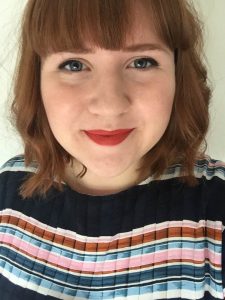
Five weeks of my summer has been spent knee-deep in research combining my love of the French language and my fascination with the unnerving topic of terrorism with the neuroscientific study of the Arts, known as the field of Neuroaesthetics. My research timeline was split into two halves: I would spend the first half of the project building a bibliography of primary sources for a literature review on the subject of Islamic Extremism in Francophone culture, in particular in experimental film, with the final portion of the project focussing on the research currently available on the topic of Neuroaesthetics.
Even before the project began, Dr Forcer encouraged me to follow my curiosity and see where it could take me. I’ve always been interested in ‘taboo’ subjects, and my research allowed me to explore areas within the topic of terrorism that particularly pique my interest. For example, throughout the scholarship I had the opportunity to explore the role played by unrest in the Paris banlieues and French prisons in the radicalisation process of an individual.
My focus for the first part of the project was to explore the kinds of film about Islamic terrorism already available to audiences, and particularly if any directors have made non-narrative, experimental films on the subject. Thanks to a translation module I took last year, I was already familiar with the 2012 action thriller Made in France and Les Salafistes, a controversial documentary film about the presence of the hard-line fundamentalist movement in West Africa. These ended up providing a really good starting point for my searches.
However, I got to a point where I felt I had hit a wall because I was struggling to find directors who were addressing terrorism through experimental cinema. Through interacting with Dr Forcer, I became aware of another non-narrative film by Franco-American filmmaker Éric Baudelaire. But finding this film seemed near-impossible, so I decided to try and get in contact with Baudelaire (or, at least, with someone on his PR team). I really wasn’t expecting to hear anything back, but little did I know that I’d find an email in my inbox a couple of days later from one of his team sending me in the right direction. If this scholarship has taught me anything, it’s that my formal written French email correspondence is now pretty fool-proof!
The second part of the project focussed on creating a bibliography of research in Neuroaesthetics, a relatively new field in Cognitive Psychology encompassing the study of Neuroscience and Art. As a languages student, daunted doesn’t describe how I felt about undertaking this aspect of the project! But thanks to the research I did, I stumbled across and was able to attend a postgraduate research event in London. This was a fantastic opportunity to experience a research event, giving me more insight into an area of academia I wouldn’t have necessarily experienced otherwise.
I really hope that my curiosity for the explorations I pursued will open up doors for Dr Forcer to uncover further in his wider research. My experience on the scheme taught me a lot about how to successfully approach and undertake academic research and interact with academics in a professional setting. My regular Skype check-ins with Dr Forcer proved invaluable and helped me to better understand the importance of collaboration in research.
10,000 words, and over 180 hours later, I am so proud to have produced academic research to a calibre I have never produced before. Before starting the scholarship, I didn’t expect for independent study to be the most challenging aspects of high-level academic research. As somebody who enjoys their own company, I thought that maintaining self-motivation would come naturally to me over my five week period on the scheme. Spoiler alert: it didn’t! But despite the various obstacles I faced, I learnt how I can improve my preexisting research techniques effectively. The academic skills I’ve learnt as an undergraduate researcher will, no doubt, be invaluable when it comes to dissertation writing in my final year at Birmingham, and I am grateful that I have been able to develop my curiosity into an area of study that I may not get the opportunity to pursue again.
Maria Allon, BA Modern Languages
